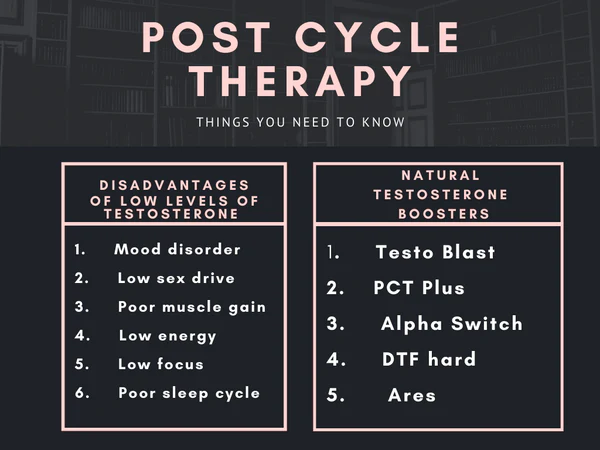What is PCT? Understanding Post Cycle Therapy and Its Importance
Post Cycle Therapy (PCT) is an essential practice for anyone who has used anabolic steroids or performance-enhancing drugs (PEDs). Regarding hormonal balance and maintaining muscle gains after a steroid cycle, PCT becomes a crucial phase. This comprehensive guide explains what PCT is, why it’s necessary, how it works, and the most common medications used during this recovery process.
What Is Post Cycle Therapy (PCT)?
Post-cycle therapy, often referred to as PCT, is the process of helping your body restore its natural hormone production after a cycle of anabolic steroids or PEDs. Steroids and PEDs can suppress the body’s natural production of testosterone, leading to hormonal imbalances. PCT aims to counteract this suppression and stimulate natural testosterone production to maintain muscle gains, prevent side effects, and promote overall recovery.
The cycle of anabolic steroid use is typically followed by a PCT regimen to minimize the adverse side effects that may occur from this hormonal disruption.
Why Is PCT Necessary?
When steroids are introduced to the body, they can significantly boost testosterone levels. However, after stopping the use of these substances, the body’s natural testosterone production can become suppressed, which can lead to the following issues:
- Loss of Muscle Mass: Without sufficient testosterone, muscle tissue can break down, leading to muscle loss.
- Fat Gain: Hormonal imbalances can cause the body to accumulate fat instead of muscle.
- Mood Swings: Low testosterone levels are linked to emotional changes like depression, anxiety, and irritability.
- Decreased Libido: A reduction in testosterone levels often leads to a diminished sexual drive.
- Gynecomastia: Estrogen levels may rise, leading to the development of unwanted breast tissue in men.
By implementing an effective PCT regimen, individuals can restore hormonal balance, preserve muscle gains, and reduce the likelihood of developing these side effects.
How Does PCT Work?
PCT works by stimulating the body’s hypothalamus and pituitary glands, which prompt the testes to start producing testosterone again. Specific medications can help jumpstart the natural hormone production that was suppressed during the steroid cycle.
PCT protocols typically focus on two key processes:
- Restoring Natural Testosterone Production: The main goal is to get the body’s natural testosterone production back on track.
- Reducing Estrogen: Since anabolic steroids can increase estrogen levels, controlling estrogen is essential during PCT to prevent side effects such as gynecomastia.
Common Medications Used in PCT
To aid in the recovery of natural testosterone production, several medications are commonly used during PCT:
1. Selective Estrogen Receptor Modulators (SERMs)
These medications block estrogen receptors, allowing the body to produce more testosterone. Two of the most popular SERMs are:
- Clomiphene Citrate (Clomid): Clomid stimulates the hypothalamus to release luteinizing hormone (LH) and follicle-stimulating hormone (FSH), which, in turn, stimulates the testes to produce testosterone.
- Tamoxifen (Nolvadex): Nolvadex has similar effects to Clomid, and it’s often used to prevent the conversion of testosterone into estrogen.
2. Aromatase Inhibitors (AIs)
Aromatase inhibitors prevent the conversion of testosterone into estrogen, which helps in maintaining an optimal testosterone-to-estrogen ratio during PCT.
- Anastrozole (Arimidex): Anastrozole is widely used to control estrogen levels by inhibiting the aromatase enzyme, which converts testosterone to estrogen.
- Exemestane (Aromasin): A more powerful option, Aromasin can help keep estrogen levels in check during PCT, especially for individuals who have used higher doses of steroids.
3. Human Chorionic Gonadotropin (hCG)
- hCG mimics luteinizing hormone (LH), which is responsible for triggering the testes to produce testosterone. hCG is often used in the early stages of PCT to boost testosterone production and prevent testicular atrophy (shrinkage) that can result from steroid use.
When to Start PCT?
The timing of PCT depends on the type of steroid or PED used. Most anabolic steroids have different half-lives, so the ideal time to begin PCT may vary:
- Short-Acting Steroids: For steroids like testosterone propionate, which has a shorter half-life, PCT should start around 3–4 days after the last injection.
- Long-Acting Steroids: For long-acting steroids like testosterone enanthate or deca durabolin, PCT typically starts around 10–14 days after the last dose.
Following a PCT protocol tailored to the specific steroids used in the cycle is essential for optimal results.
What Does a Typical PCT Cycle Look Like?
A typical PCT cycle can last anywhere from 4 to 6 weeks, depending on the severity of testosterone suppression. Here’s an example of a standard PCT protocol:
- Week 1–2:
- Clomid: 50 mg per day
- Nolvadex: 20 mg per day
- Week 3–4:
- Clomid: 25 mg per day
- Nolvadex: 10 mg per day
- Week 5–6:
- Continue Clomid and Nolvadex, gradually tapering off the doses.
Note: These dosages are typical, but they may vary based on individual needs, the steroids used, and the guidance of a healthcare provider.
Benefits of Post Cycle Therapy (PCT)
A well-executed PCT can provide the following benefits:
- Restores Natural Hormone Production: Helps jumpstart the body’s natural testosterone production.
- Preserve Muscle Mass: Reduces the likelihood of muscle loss after steroid cycles.
- Maintains Energy and Mood: Helps improve energy levels and stabilize mood after a steroid cycle.
- Prevents Estrogenic Side Effects: Reduces the risk of gynecomastia and water retention.
Common Mistakes to Avoid During PCT
While PCT is vital for recovery, many individuals make the following mistakes:
- Starting PCT Too Early or Late: Timing is critical, and starting PCT too early or too late can reduce its effectiveness.
- Not Monitoring Hormone Levels: Regular blood tests are crucial to ensure PCT works effectively and medications are adjusted as necessary.
- Not Following the Full PCT Cycle: Skipping doses or stopping PCT early can lead to incomplete recovery and hormonal imbalance.
Leave a comment